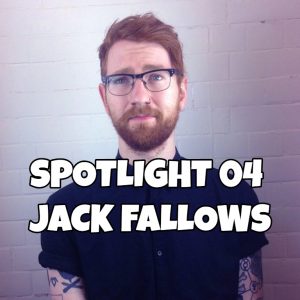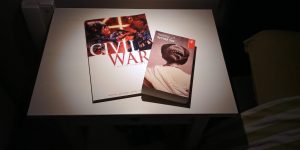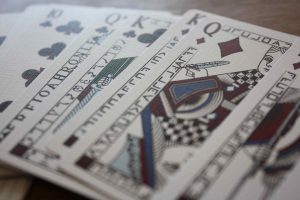לפני שנתיים, בשיטוטים וחיפושים אחרי פודקאסטים מאזור החידות והחשיבה היצירתית, נתקלתי בשני פודקאסטים מעניינים במיוחד. הראשון, Hey Riddle Riddle ובו 3 מהמאלתרים המדהימים ביותר שיצא לי לשמוע, פותרים חידות ובעיקר עושים שטויות (פודקאסט חובה, אולי בתקווה אצליח לחלץ מהם איזה ראיון כתוב).
הפודקאסט השני הוא Escape This Podcast שהצליחו לעשות משהו שהוא לא פחות ממדהים בעיני – התאמת חדר הבריחה לפלטפורמת אודיו. התוצאה מצוינת ומצליחה לייצר עניין בשני מישורים – האחד, לנסות לפתור את החדר תוך כדי, והשני, להציץ אל תהליכי החשיבה של המשתתפיים שמנסים לפתור את החידות.
ביקשתי מ-2 היוצרים לשתף אותי בתהליך היצירה המרתק וקיבלתי כמה תובנות מעניינות. תיהנו!
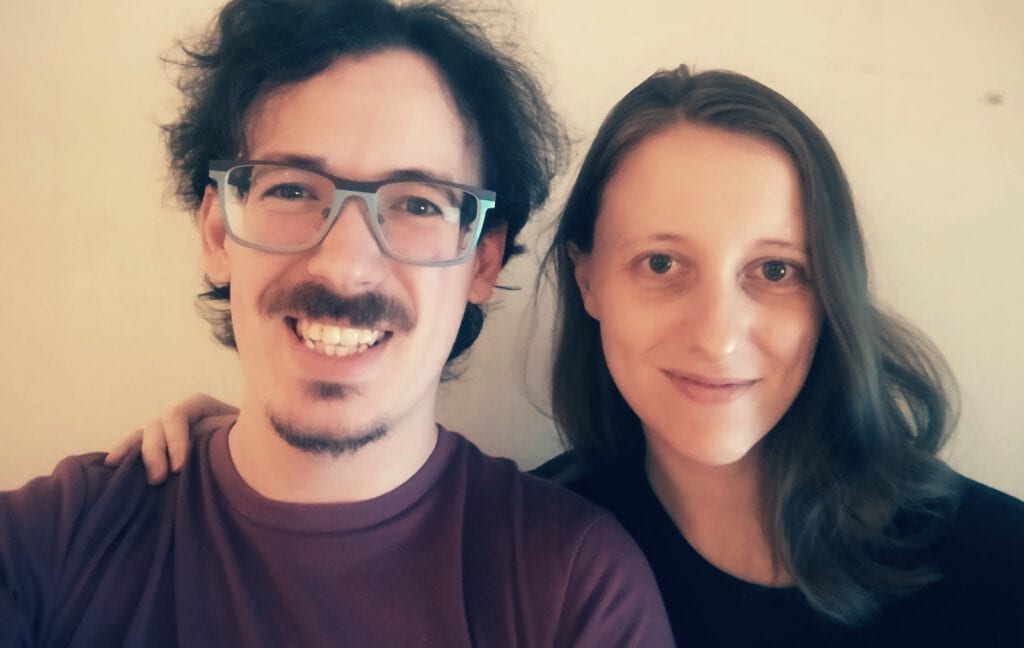
In a nutshell: you are…?
We are Bill Sunderland and Dani Siller, 30 years old, from Sydney, Australia. Together we’re the small team who creates the podcast Escape This Podcast, among other shows and creative projects under the Consume This Media brand. Bill is the producer, play tester and editor, and Dani is the writer and game master. We’re also married and coming up on our ten-year anniversary!
Can you please explain very quickly what is Escape This Podcast?
Escape This Podcast is a show on which Dani designs escape rooms specifically for the audio format, then guests come on to play through the story and puzzles. We call ourselves ‘a mix of escape room puzzles and tabletop roleplaying games’, but you could also say we’re like an old school text-based adventure game on PC. The game master – usually Dani – tells players what the room is, why they’re there, and exactly what items they can see around them. Players then say what actions they take – looking closer at a certain object, opening up doors, inputting codes into locks – and the game master describes the consequences of these actions. We keep going until the players have successfully solved everything and puzzled their way to escape. It’s great fun.
How long have you been working on the show?
We’ve been making EtP for just over four years now, and ha, the story of where it came from is a pretty simple one. Bill wanted to start a podcast one day. Dani said, “Sure, as long as we’re not one of those shows that just reads Wikipedia pages once a week”.
We just weren’t sure what niche we could possibly fill. We didn’t have PhDs in anything. We didn’t work in crazy industries. We weren’t even true crime enthusiasts. But we were gamers. Video games, board games, and most importantly, tabletop roleplaying games. On top of that, Dani had spent the last year pursuing writing as a career. And of course, we’d very recently started getting into this whole ‘escape room’ hobby! So we started to wonder, was an escape room something that could possibly lend itself to the podcasting medium?
It would be tricky, creating entire scenarios and strings of puzzles only using your voice… but we gave it a shot. And it worked better than we could have possibly imagined. We started out with just us, huddled up around a single microphone with a couple of friends as the players, but soon we became part of the phenomenal community of escape room enthusiasts and puzzle masters who helped us grow in ways we couldn’t have imagined. As of mid-2020, our work in Consume This Media is a full-time job for both of us, and we consider ourselves unbelievably lucky that this is the case.
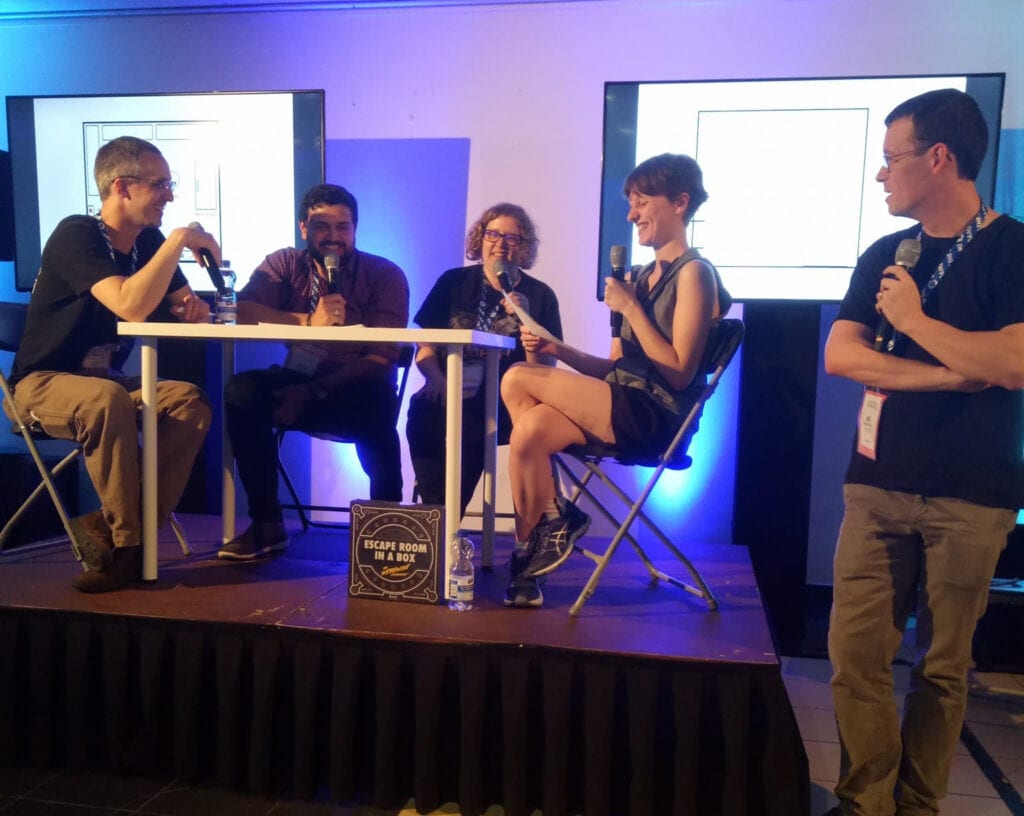
What is the best thing in creating the show?
Dani: I’ve always loved telling stories. Not necessarily huge, sprawling, epic novel type stories, just anything that feels rounded and satisfying. Creating them feels like a puzzle in its own right. I grew up assuming I’d be an author, and I had no idea exactly how many other modes of storytelling there were out there, so learning how to tell stories through escape rooms has been such a cool adventure. Oh, and there’s one really awesome perk this has over novel-writing: the stories actually get finished! Writing novels takes forever, but I get the rush of having a finished project every couple of weeks. It’s a small thing, but I do believe you can’t properly improve as a writer unless you’ve made it all the way to the end as often as possible. So it definitely helps.
Bill: I have absolutely loved being able to build and be part of a community. I love playing all the games that Dani creates, but the thing that I have most enjoyed is being able to meet cool and interesting people around the world and play those games with them. It’s also wonderful to be able to actually make things. When you finish an episode, you have added a tangible (well… digital at least) piece of art that people can enjoy, and then you move on to the next one. It makes every week feel like a real achievement, and that is a very good feeling.
I'm sure the work has its frustrating moments. What are they?
Dani: The risk of creative burnout and running out of steam. There are so many awesome projects out there and I want to be involved in all of them! But the more you volunteer for, the more panicky you get, the more worried about not doing a good enough job and letting people down… I want to do everything without the massive weight that comes with doing everything. Ugh, this is just part of having your own business, isn’t it?
Bill: I think I can speak for a lot of independent creative people and say that marketing the show is the most frustrating thing. It’s its own skillset that is difficult to learn and it is more pragmatic than enjoyable. On top of that, the number of times you see people who you know would love your show, but can’t manage to get the message to them that you even exist… It can be difficult to deal with!
How’s creativity come into place in this line of work? How do you get inspiration?
Dani: Creating a new escape room every fortnight does take some creativity, yeah. Since the beginning I’ve been afraid that I’ll run out of ideas and the show will collapse in on itself. Luckily there’s inspiration all over the place – almost anything can be an escape room, and almost anything can be a story. As long as I can get a solid picture in my head of what a room might look like (and it doesn’t even have to be a literal room), an adventure just naturally forms itself. Seriously, look at whatever item is closest to you right now, and there’ll be at least three puzzles that can use it. Maybe you just have to love life and be fascinated by everything that exists. Or maybe it’s about having no idea how a lot of things work, so you’re seeing puzzles where more competent people wouldn’t.
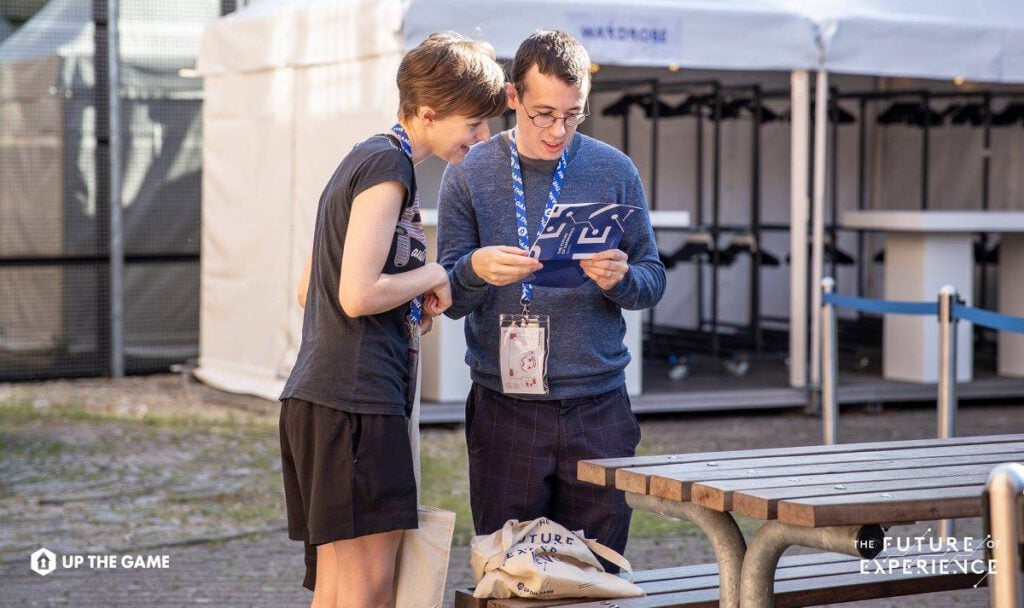
If you HAVE to choose, what is more important in your opinion – the puzzles or the narrative (if not “the story” then maybe the thematic of it all)?
Dani: I feel like a walking contradiction here, but for me, it’s the puzzles. It’s ridiculous – when I write our rooms, the puzzles are the last thing I consider, and everything else is about the story and setting. And yet puzzles are what got me into escape rooms. They’re why this isn’t just reading a book or watching a play. If I had to choose between a room full of puzzles but no story or a room full of story but no puzzles, I’d have more fun in the former. I love story more than I can say, and it’s the difference between ‘just a room’ and ‘that was an experience’, but the puzzles are why I’m here.
Bill: I agree, narrative is such a wonderful part of the experience, but it’s like the icing on a cake. You can still enjoy a lovely piece of cake without icing, but no one is eating fondant covered cardboard. Escape rooms are still fundamentally a game that you play, and while you can (and should) use the game to offer a compelling narrative, if the puzzles are unenjoyable then the story won’t matter.
What is the most insane/awesome thing you got to do?
Dani: I hate speaking in clichés, but the most awesome part of this is the people we’ve been lucky enough to meet and work alongside. As we said earlier, when we started it was just the two of us and whichever friends we could drag over to play with us. Now, over the years we’ve met and run games for amazing industry professionals, other podcasters, comedians, even TV and movie stars. Don’t get me wrong; we’re still playing with our friends. It’s just that our circle of friends has ballooned out in ways I never would have expected. And they like what I do? I’m a peer to these ridiculously talented people? That’s so wild.
Bill: For me, it was going to Up the Game in 2018. We weren’t far into our podcasting career but had the opportunity to jump on a plane for a whirlwind trip to The Netherlands, do a live show, make long-lasting industry friendships, and escape from prison! It was one of the first steps in making us feel like a real part of the escape room landscape.
Can you share with us one tip for maintaining an “everyday creativity mindset? How can one keep their mind sharp and creative?
Dani: Keeping creative… this is definitely tough, and a lot of the traditional advice I’ve seen doesn’t work for me at all. My best advice for keeping your creative energies up is to give yourself a quota of one. One sentence, one illustration, one paintstroke, whatever – you just have to come up with one. And I find that just one rarely stays as just one. It starts to flow. And if it doesn’t, so what? You hit your quota! Reward yourself, then move on to the next just one. I often start my days feeling totally hazy and like my brain doesn’t work, but following this method stops that from turning into a guilty spiral of, “I can’t possibly get a single thing done today.”
What’s in store for the show in the future?
Dani: I want to find out what other weird formats we can branch out into. Right now I’m thinking musicals. Really! While expanding Escape This Podcast is always a key goal, we’re always looking to have a go in other areas of the creative and puzzle-y arts. We’ve already done some design for online games (such as Trials of Wisdom in conjunction with the Sydney Opera House), and are currently working with an amazing project designer and director in the local immersive theatre field to see where our puzzles and story design can fit in there. A musical feels like the next logical step.
Bill: There will definitely be more Escape This Podcast coming out. Maybe once it becomes reasonable again there will be more live shows, who knows? But now that we’re full time, we’re able to focus on new projects, get back into our other shows (like Solve This Murder) and try strange new things.
Any shout-outs you would like to give to someone you think deserves it?
Dani: Uh oh. This is like an Oscars speech, I’m definitely going to forget people. Let’s just say, in both the puzzle and podcasting community, we’ve met people to whom I’m more grateful than I can possibly say. I’ll limit my specific shout-outs to two people: first is Errol Elumir, who I feel basically runs the world of escape rooms, and who was the one to introduce us to the community. Wow. That made all the difference in the world. And second is Bill, not just because of the work he does on the show now, but because without him this life wouldn’t exist. He was happy for me to quit the normal workforce to pursue creative writing, and I can’t say enough how much I needed that to happen. I’m so glad that led to where we are now, and I’m so lucky to have him.
Bill: Yes, Errol was such a big part of us getting in with the rest of the escape room industry. And I’m so glad I helped Dani pursue writing, because that is the backbone for our entire company now! I’d also like to thank our friend Greg Hatten, who was there when we first brainstormed the idea for the show, created our fantastic logo, and has been a huge supporter of our show every step of the way.
Any last words?
Play games, make art, follow your dreams, and listen to Escape This Podcast.

